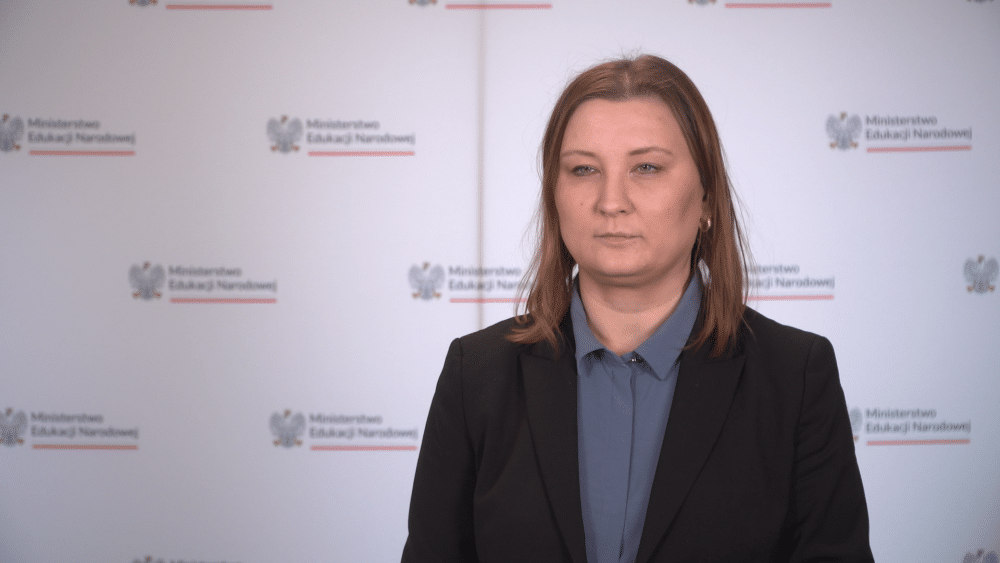A number of changes are expected in Polish schools. Last month, consultations were held on a draft amendment to the regulation, which includes changes to the formula of homework in public primary schools. Meanwhile, on 19 February, the Ministry of National Education (MEN) began pre-consultations on changes to the curriculum. Plans also include reforms aimed at making Polish schools more supportive and friendly for students. One of the priorities is inclusive education, special schools, and support for children with individual needs in education, which includes children on the autism spectrum, children with ADHD, mood disorders, and those with disability decisions.
A report by the Unaweza Foundation “Young Minds”, conducted on a group of over 180,000 students aged 10-19, shows that nearly 40% of Polish teenagers have experienced suicidal thoughts, and 16% self-harm. On average, every third person is suspected of having depression, sleep problems, and difficulties in learning. Every second person has extremely low self-esteem, 59% feel useless, and over 37% struggle with feelings of loneliness. The Unaweza report also shows that Polish teenagers cannot cope with everyday stress and often experience hate – both online and in class – and have great problems with self-acceptance. Despite this, up to 68.5% of students have never sought help from a psychologist, either at school or outside, and on average, every tenth person feels ignored by their parents.
“The psychological condition of children and youth in Poland is tragic, as shown by the findings of not only the Ombudsman for Children’s Rights Office, the Ombudsman for Civil Rights Office, but also the Supreme Audit Office report, which shows that the state of Polish child psychiatry is also in a tragic state,” says Jan Gawroński, sociological deputy of the Ombudsman for Children’s Rights.
Experts stress that the mental health crisis among children and youth is influenced by various factors, including forced isolation during the COVID-19 pandemic, loneliness, and everyday stress, lofty ambitions, parent’s helplessness towards their children, youth hate, and unchecked access to social media. There is also a significant problem with educational pressure and student burnout resulting from high school demands.
Gawroński adds, “One of the factors of the mental health crisis is the overload of the curriculum and the amount of time students spend in Polish schools. Work is already underway to slim down this curriculum, which I am very happy about.” He goes on to explain that even adults are sometimes told: my child comes home after many hours at school and still has several hours of additional activities, homework, preparing for the next day. Many adults would not be able to cope with such obligations. That is what affects mental health – stress, coming to school the next day with a heavy load. Therefore, the Ministry of Education has included in its plans the slimming down of the curriculum and limiting homework to such an extent that children and youth have knowledge, but this knowledge is not paid for with mental suffering, that everything takes place in an atmosphere of security, respect and acquiring new skills at the right stage.”
Proposed changes are a response to numerous demands submitted to the department regarding the reduction of excessive student obligations and improvements in teaching efficiency. On 19 February, the MEN began pre-consultations on changes to the curriculum. The new, narrowed-down basis will come into force during the transitional period from the 2024/2025 school year. However, during this time, experts will be working on a comprehensive reform. The comprehensive, new curriculum will come into force two years later – from 1 September 2026 in primary schools, and from the 2028/2029 school year for secondary schools.
“The role of the school in ensuring the mental health of students is key, because on average, 1/3 of their time falls on the school. This is an environment that can prevent any mental crises. This is precisely the role of the school, how we see it. It includes trained teachers who know how to counteract and react to a crisis, a school environment that is a support network for a young person, various programs implemented in cooperation with the ministry or non-governmental organizations,” explains Paulina Piechna-Więckiewicz.
MEN is planning reforms that will make Polish schools more supportive and friendly for students. One of the priorities is inclusive education, special schools, and support for children with individual needs in education, including those on the autism spectrum, children with ADHD, mood disorders, and those with disability rulings. This area remains one of the biggest issues for Polish education.
“In the context of people on the autism spectrum and with associated disabilities, one of the factors in the mental health crisis is the lack of implementation of recommendations from the ruling on the need for special education,” says Gawroński.
As he points out, the Ombudsman for Children’s Rights office receives many complaints, applications, and letters from parents regarding the field of education and the mental condition of children and youth.
“Here, honestly, publicly, I admit that there is a lot for this reason, that the previous Ombudsman for Children’s Rights did not take up topics in this area, so we are taking over these issues from him and taking up new ones. The scale of problems is huge,” says Gawroński. “We are taking various actions, the Ombudsman will appoint an expert group on mental health. Of course, the activities of the Office of the Ombudsman for Children’s Rights will also involve young people, so that their voice will also be heard. That is why we are also working on the establishment of the Social Council for Children and Youth at the Ombudsman for Children’s Rights, it will be the first advisory opinion body in the history of the Ombudsman for Children’s Rights office and this topic will also certainly resonate. We also have excellent mental health experts in the office.
